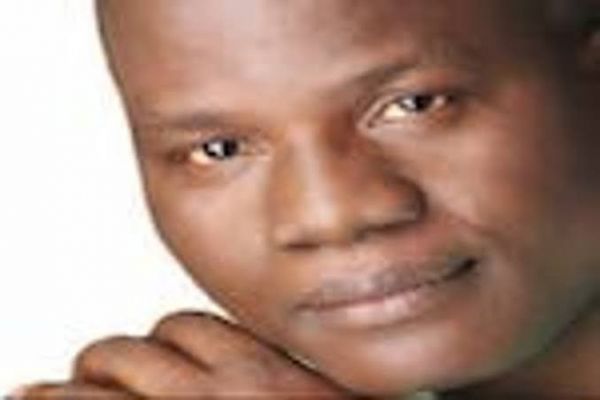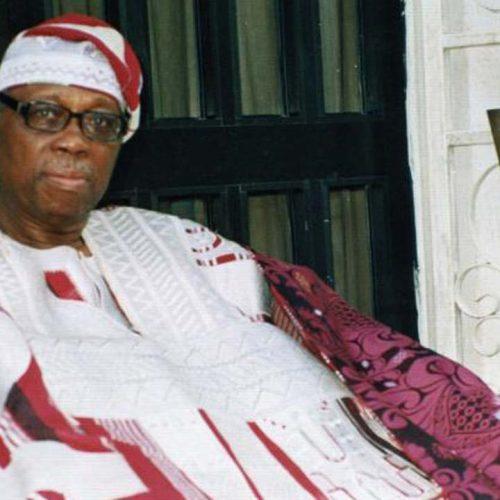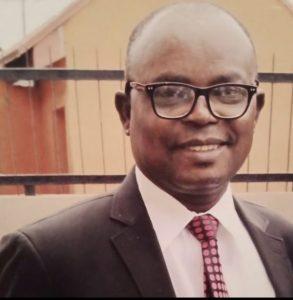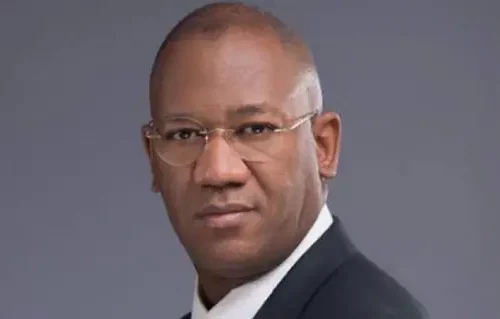
In his younger days, President Yoweri Museveni of Uganda, who was re-elected a fortnight ago for a sixth term in office, was widely acclaimed as an agent of change.
Today, the 76-year old former guerrilla fighter is widely seen as an obstacle to change in his 35th year in power.
The obvious irony in Museveni’s political personality is, perhaps, exemplified in a statement he made when he was barely two years in office : : “The problem of Africa in general and Uganda in particular is not the people, but leaders who want to overstay in power.” Ironically, this statement more or less encapsulates the position of his main challenger in the Jan 14 presidential election, Robert Kyagunlayi , better known by his stage name as a pop star, Bobi Wine. In the books of Wine and his supporters, the problem of Uganda today is squarely Museveni.
The Uganda president led the National Resistance Movement (NRM), waving the flag of freedom and progress as he got to power in 1986 when Wine was four years old.
This transmutation from being a solution to becoming the problem is what may eventually define Museveni’s place in history.
The story of the January 14 election is another indication of a progressive promise turned tragedy.
Museveni’s actions are reminiscent of the story of President Robert Mugabe of Zimbabwe, a liberator turned dictator at the twilight of his political career. Soon after independence in 1980, Mugabe set forth with building his nation freed from the shackles of the most pernicious form of colonialism on a progressive foundation. Imbued with political savvy, he embarked on progressive policies such as the land reforms (which were later perverted) economic planning and aggressive democratisation of access to quality education and healthcare. Even at a point the West even pointed to Zimbabwe as a model political economy in Africa. Tragically, however, by the time he died two years ago, Mugabe left his country in virtual ruins. No thanks to the cumulative effects of series of political errors especially the repression of opposition and resistance to the widening of the democratic space.
Although as a revolutionary, Mugabe was more ideologically grounded than Museveni, yet the situation in Uganda bears some semblance to the condition of Zimbabwe in the last days of Mugabe.

On January 16, Museveni was declared the winner of the election with 59% of the votes while the runner – up, Wine, who remarkably captured the imagination of the youths, secured 35%. What with the violence and intimidation of the opponents before and during the election, the results are being fiercely disputed by the opposition. There was a horrific video of a lady being brutalised by security men in presence of her son. Such assaults on human dignity were prevalent during the election. Mr. Wine himself wore bullet-proof vest and helmet in the course of his campaigns. His home was invaded by state agents and the supporters were frequently attacked. While the public health climate already made campaigns problematic for Wine, who calls himself the “ghetto president,” Museveni’s police practically chased him out of the political field. The opposition was denied media access. The internet was shut down. More often than not, Wine relied on foreign media to tell his own side of the story.
The matter was worsened by the bloodletting that marred the electoral process. Soon after Wine submitted his nomination forms last November he was arrested and detained for two days. His supporters trooped out to protest. No fewer than 54 of them were reportedly killed by the police. The situation was less bloody on another occasion when all members of his entourage to a campaign ground were arrested. The whole atmosphere was militarised. The opposition was under siege.
Observers have, therefore, questioned the credibility of the Ugandan election. With the electoral dispute taken the court, even western commentators have compared the Ugandan assault on democracy with the violence inspired by former President Donald Trump in the United States. Violence and manipulation were employed by the incumbents in both cases. But unlike America where the system is resilient against attack, the institutions in Uganda are too weak to withstand assaults on the democratic process by the state under Museveni. Little surprise, Wine calls the election “the worst rigging” in the country’s electoral history.
It is now clear that like Mugabe, Museveni has no succession plan. Critics and opponents are already projecting that his exit from power might be not be a smooth transition to another generation of Ugandan leaders to whom Wine is boldly giving a face.
Yet it has not always been a tale of woes for Museveni in power.
So, Museveni should learn the lessons of almost 60 years of Ugandan post- independence story so that history would not repeat itself tragically. Wine said that if Museveni made peaceful and fair elections impossible, he might end up like Muammar Gaddafi, another leader who was once popular with his people, but ended his political career in tragic circumstances. Libya is yet to recover from the ruins that followed the fall of Gaddafi.
In a different context, like Mugabe, Museveni was once praised for progressive governance. He was a poster boy of liberal political and economic reforms in Africa in the late 1980s and 1990s. He brought sanity and stability to the war-torn Ugandan political space. This was barely a decade after the monumental chaos caused by the brutish dictator, Idi Amin. Museveni also embraced the mixed-economy model with the empowerment programmes for the poor people. He fought the HIV/AIDS epidemic in an exemplary manner. In return, he got generous aids from development partners and his reforms were supported by western agencies. He was immensely popular with his people. Even the western media were generous in reporting his successes. He was described in the 1990s as the “African other statesman,” the first one being the venerable Nelson Mandela. Other called him the African Bismarck in the light of the reforms and nation-building efforts associated with his government. The administration of former American President Bill Clinton saw Museveni as “a beacon of hope.” Indeed, the West saw in Museveni a solid ally in the “war on terror” in east Africa.
Today, however, young Ugandans call Museveni Napoleon, in comparison with the ruler in George Orwell’s Animal Farm.
The promise of Museveni was evident early in life, decades before he fought his way from the bush to power. He developed a clear revolutionary consciousness in his formative years. When he studied economics and political science at the University of Dar es Salam in the late 1960s, the institution was a citadel radical thinking. He became a Marxist with particular interests in the ideas of Frantz Fanon and Pan- Africanism. Museveni was a leader of the student movement, the African Revolutionary Front. He was part of the rebellion that terminated the poltical brutality of Idi Amin in 1979 and the subsequent second coming of President Milton Obote. Museveni and his comrades formed the Popular Resistance Army (PRA) to fight the government of Obote. It was estimated that in the crisis of the Obote era, more than 100, 000 civilians were killed. In the course of prosecuting the insurgency against the government of Obote, Museveni’s army attacked the formations of Uganda National Liberation Army. Museveni later forged a political collaboration with former President Yusuf Lule. As result, Lule’s Uganda Freedom Fighters merged with Museveni’s PRA to form the National Resistance Army, the military wing of the political formation, National Resistance Movement (NRM).
Interestingly, after 35 years in power as a political party, the name has not changed from that of a “resistance” movement. You wonder what the NRM is still resisting now it is facing a formidable resistance from the post-Idi Amin generation of Ugandans.
Meanwhile, as the fighting in the bush intensified the NRM actually developed a vision of the society for which it was fighting and which it hoped to actualise if it got power. On its agenda were national unity, democracy, security, African unity, economic independency, anti-corruption, struggle against inequality and the development of the social sector.
In contrast, 40 years later Wine’s political party and other minor parties have not clearly articulated their programmes and vision the way Museveni’s party did decades ago with a dream to reshape Uganda.. That’s no indication of political development among the younger generation of Ugandans.
The struggle of Museveni and his comrades attracted attention of political forces within Africa and beyond. Solidarity was reportedly extended to him by formidable forces within the continent. You couldn’t discuss progressive politics in Africa in the 1980s without mentioning Museveni and his reforms in Uganda.
Almost 40 years later, this still remains a worthwhile agenda for any African country to pursue to be on the path of progress. Is it safe to say that Uganda is on that progressive path today? This question makes it another African irony.
It is worth emphasising that freedom, justice and human dignity were elements that Museveni and his comrades made their battle cry as they fought battles in the bush and the city. In fact, here is what Museveni said at his inaugural speech 35 years ago:
“Every person in Ugandan must have absolute security to live wherever he wants. Any individual, any group who threatens the security of our people must be smashed without mercy. The people of Ugandan should die only from natural causes which are beyond our control, but not from fellow human beings who continue to walk the length and breadth of our land.”
This vision appears to have been dimmed by the violations of human rights and killings of protesters and opponents in Museveni’s Uganda. The experience of the January 14 election was certainly not consistent with this vision.
Museveni should be wary of what would be the denouement of his noteworthy political career. He should avoid being another Mugabe who dented his shining revolutionary credentials with the mismanagement of his exit from power. Mugabe’s own comrades had to manoeuvre him out of the presidential villa. And that was not the way to anchor an otherwise great revolutionary career.
It was a big error for Museveni to have tampered with provisions for presidential term limits in the constitution.
Ugandan is another lesson for African countries whose constitutions lack limits for presidential terms. They are taking a risk with power mongers. Those countries having the important provisions in their constitutions should preserve them for stability.
Mandela declined to run for a second term as South African president. African leaders are yet to see the logic in the Mandela example: the demystification of power and its allure.
All told, it is grossly unfortunate that given his progressive background and 35 years running, Museveni has not deepened popular democracy in Uganda. The verdict of history may not be kind on him for this failure.
QUOTE
“Museveni should learn the lessons of almost 60 years of Ugandan post- independence story so that history would not repeat itself tragically.”
Thisday






















